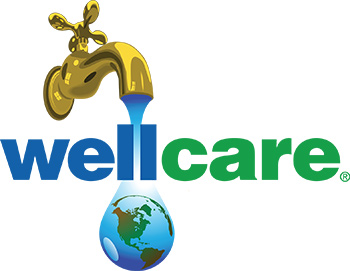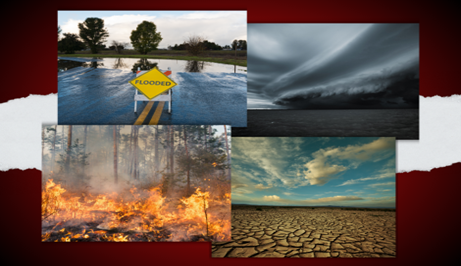With hurricane season beginning on June 1st, natural disasters and emergencies are on our minds. If a natural disaster has occurred on or near your property, there are some things you need to know about your drinking water supply. Throughout the articles some cautions may be redundant, however, they are important to reiterate for each natural disaster. If there are concerns about your water supply, follow local or state health department drinking and bathing advisories.
Moving flood water or high winds can carry large debris that could loosen well hardware, dislodge well construction materials, or distort casing. Coarse sediment in flood waters could erode pump components. If the well is not tightly capped, sediment, debris, and flood water could enter the well and contaminate it. Wells that are more than ten years old or less than 50 feet deep are likely to be contaminated, even if there is no apparent damage. Floods or heavy debris may cause some wells to collapse.
Remember that there is a danger of electrical shock from any electrical device that has been flooded. Rubber boots and gloves will NOT protect you from electrical shock. DO NOT turn on the equipment until the wiring system has been checked by a licensed electrician, well, or pump contractor.
In most emergency situations, procuring bottled water is the most promoted way to access safe drinking water. However, if the water only needs to be disinfected to be potable, there are four main options to treat water to make it safe for consumption:
- Boiling
- Chlorination
- Distillation
- Water treatment devices certified for microbial reduction of bacteria, cysts, and viruses
DO NOT rely on water treatment filters or devices that are NOT certified for microbial reduction as they may not provide the protection necessary for emergency situations. Consult a water professional or manufacturer for more information.
Septic systems should not be used immediately after floods. This is because drain fields will not work until underground water has receded. Septic lines may have been broken during flooding or other storms. If flooding has occurred for you, contact a local septic service immediately. Only trained specialists should clean or repair septic tanks because tanks may contain dangerous gases.
Prepare yourself in advance by downloading our FREE wellcare® information sheet on Emergencies & Disasters and Wells and by finding emergency agencies in your state using our Emergency Agencies interactive map. You can also view our short video on YouTube.
The wellcare® Hotline can also help! Our friendly staff members are available to answer your questions and provide you with any information you need to maintain a safe water supply. Contact us by calling 888-395-1033 or chat with us live at wellcarehotline.org.

